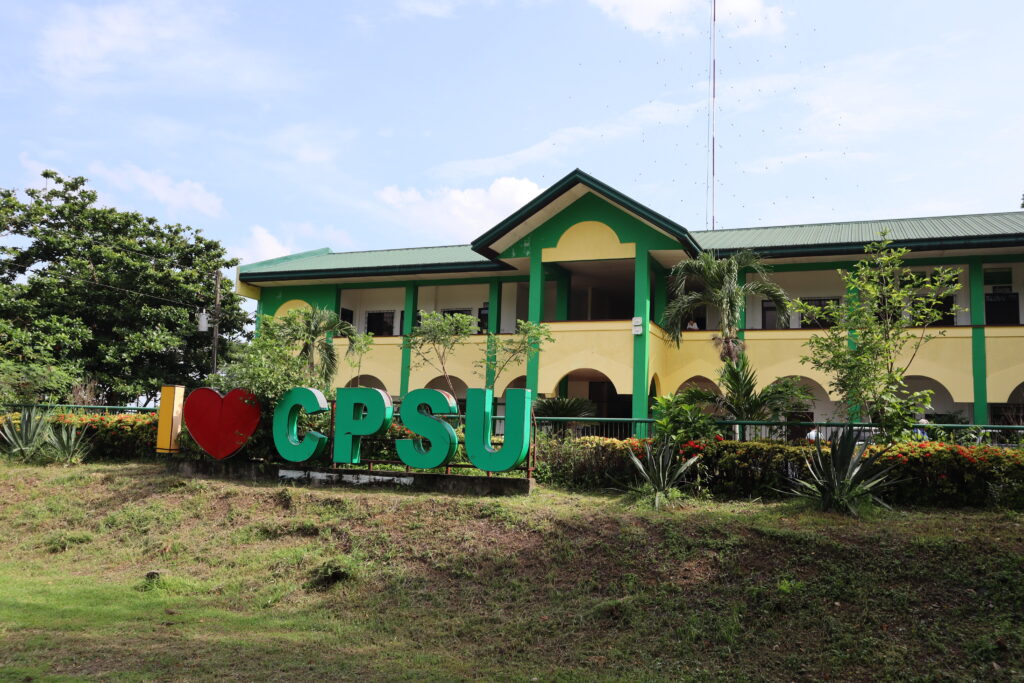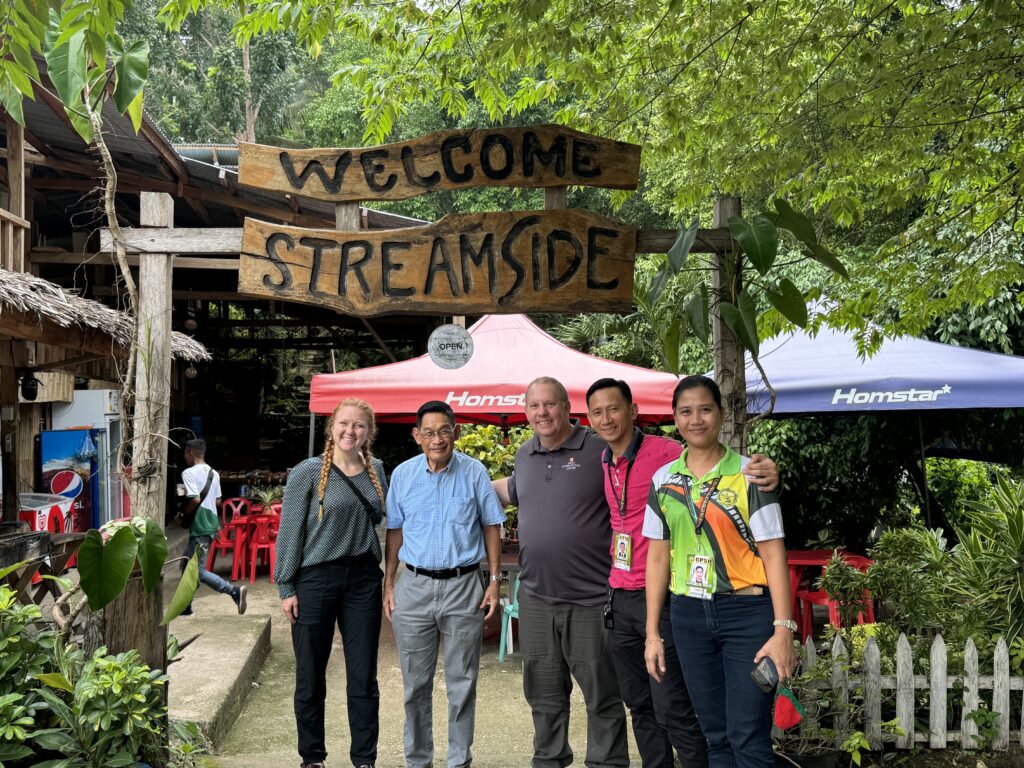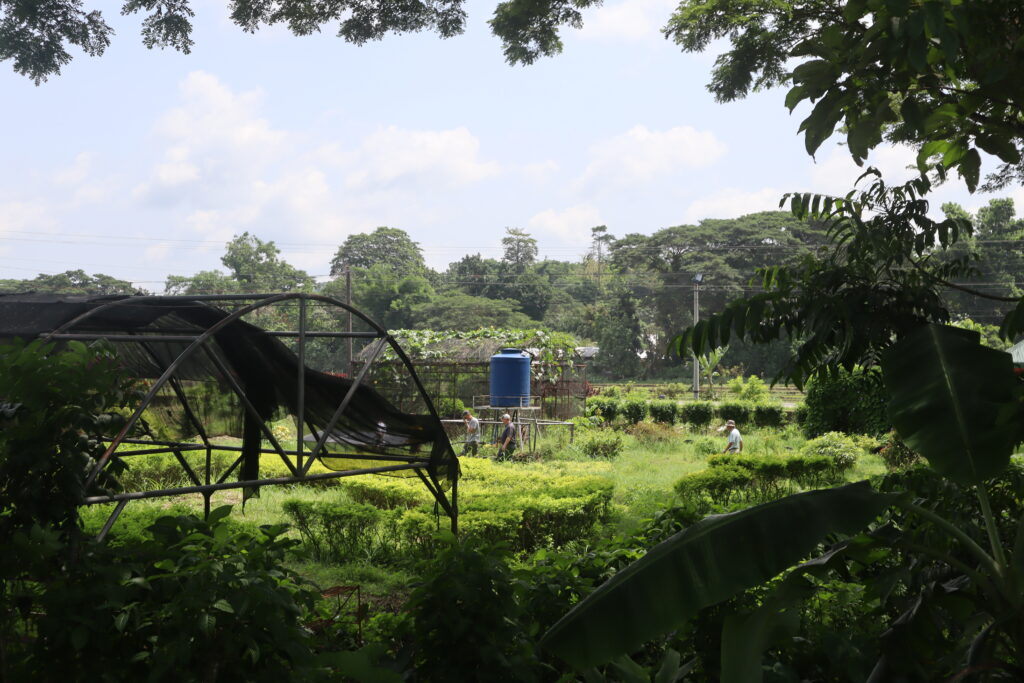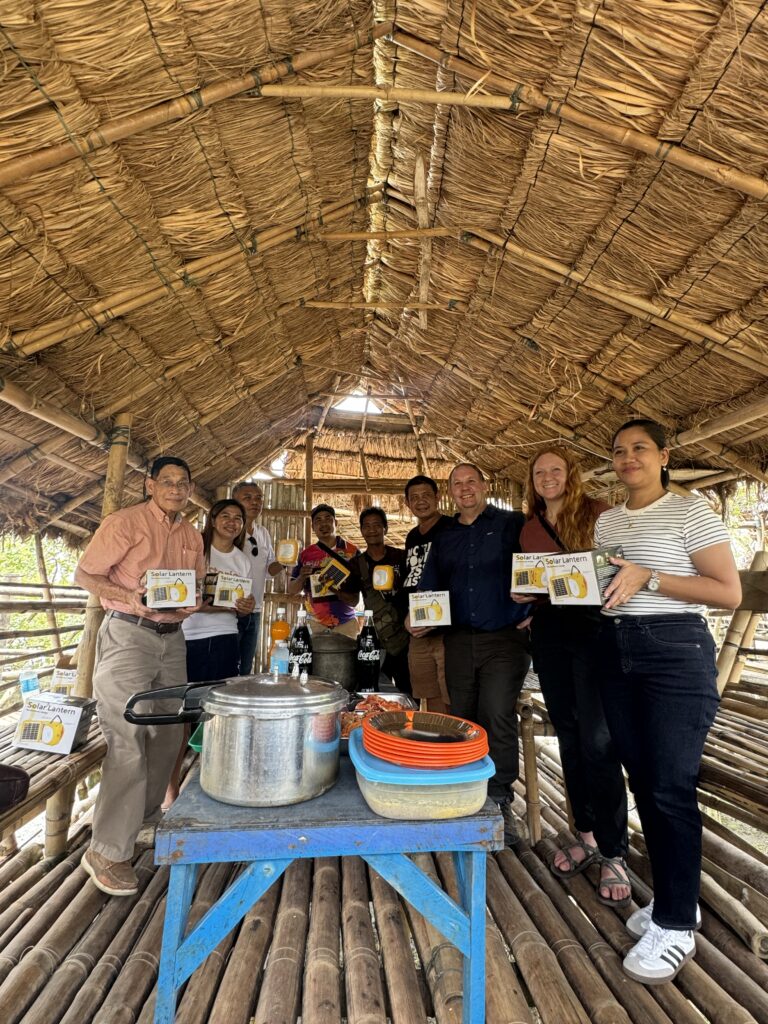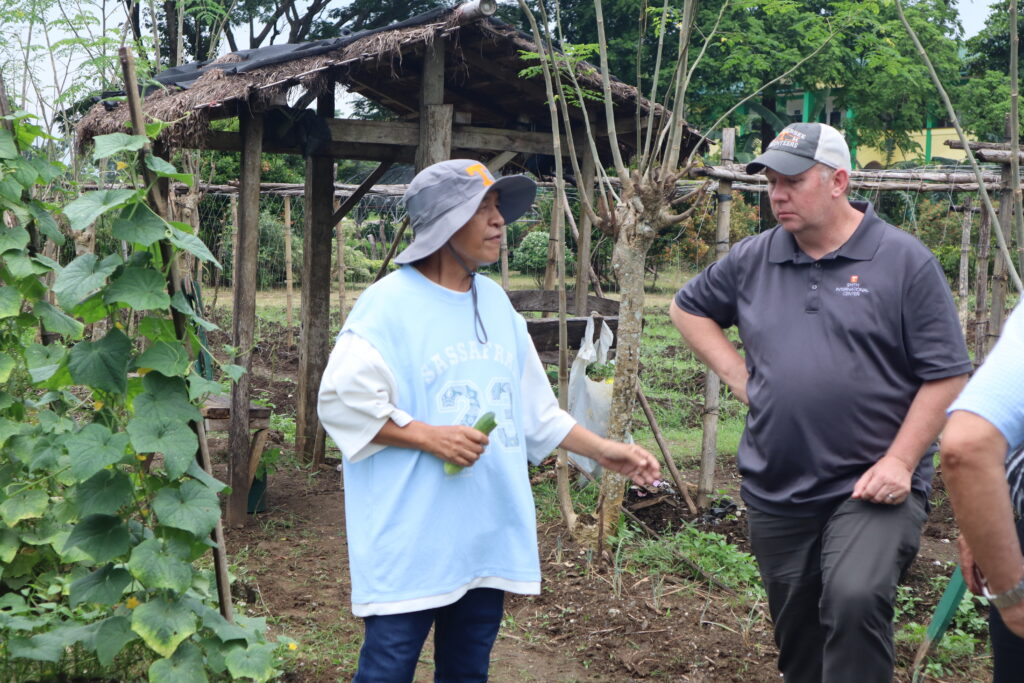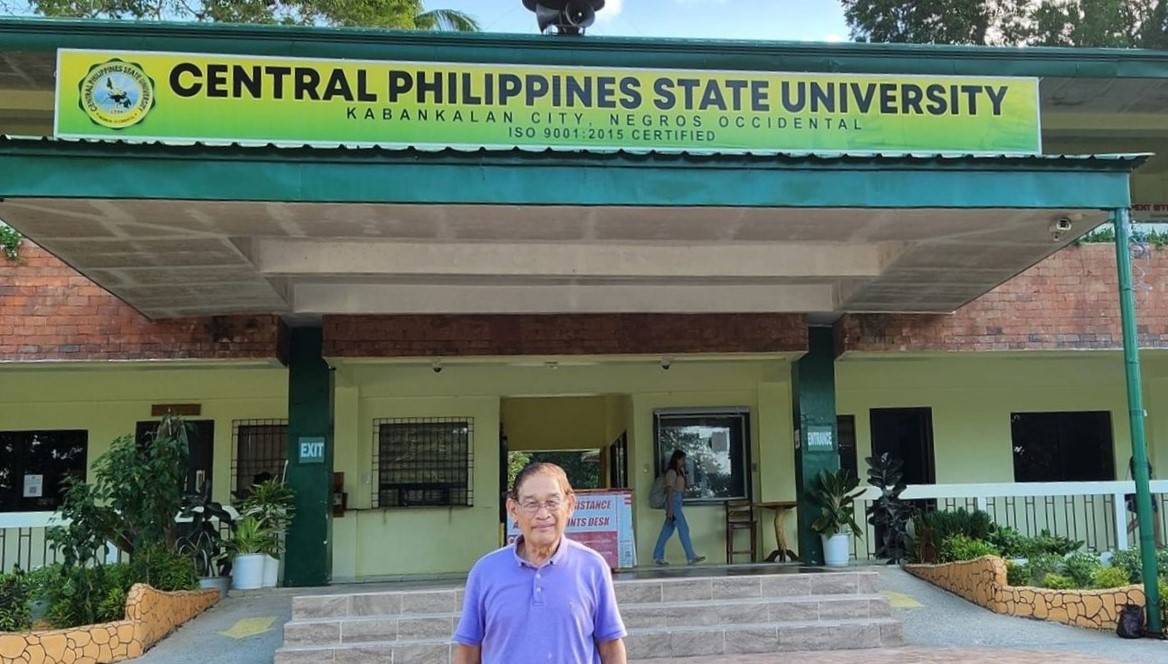
By Michelle Boutell
The USAID-funded John Ogonowski and Doug Bereuter Farmer-to-Farmer (F2F) Program provides technical assistance from U.S. volunteers to farmers and agricultural groups in foreign countries to promote sustainable improvements in both food security and agricultural production, processing, and marketing. In the Fall of 2023 the Smith Center was awarded five years of funding to implement the “Agricultural Leaders of Tomorrow” (ALOFT) regional USAID F2F program for Southeast Asia. The ALOFT program is building off the previous F2F AVOP project that the Smith Center implemented in Cambodia from January 2022 to September 2023 in partnership with the Center of Excellence on Sustainable Agricultural Intensification and Nutrition (CE SAIN).
Working with partners at the Royal University of Agriculture in Cambodia, ECHO Asia, and the Central Philippines State University in the Philippines, the ALOFT program provides technical assistance in climate-smart agriculture, agricultural entrepreneurship and agribusinesses, agricultural education, extension and advisory services through short-term exchanges between skilled American volunteers and farm groups, agribusinesses, NGOs, and universities. These exchanges place American volunteers with Southeast Asia host-organizations for two-week assignments to respond to local requests for technical assistance.
Follow along through our F2F Success Stories as we highlight the experiences of past F2F volunteers and raise awareness about future volunteer opportunities through the ALOFT Program. This F2F Success Story was written by Michelle Boutell, a current UT graduate student in Agricultural Leadership, Education & Communications and former F2F AVOP volunteer.
Dr. Manny Palada has had a storied career in international agricultural development. After earning a PhD in tropical agriculture from the University of Florida, he spent decades improving sustainable crop production systems for resource-poor farmers across the Caribbean, Sub-Saharan Africa, and Asia. In addition to being an agricultural consultant for the World Bank and a key player in numerous USAID-funded projects, Palada has also worked for international agricultural research centers in the Philippines, Nigeria, and Taiwan. His extensive field experience includes visits to over 45 countries, and his CV lists over 40 publications, 100 conference proceedings, and 55 research articles.
After retiring from his position at the World Vegetable Center in Taiwan, Manny wanted to serve farmers in his home country in the Philippines. A native of Negros Occidental province, Manny became the first volunteer with ALOFT Philippines, based at Central Philippine State University (CPSU) in Kabankalan City, Negros Occidental. His March assignment enabled ALOFT Philippines to commence program activities while CPSU worked to hire and onboard new staff. During this time, Manny supported staff development, identified and mobilized relevant host organizations, and conducted an analysis of priority value chains in the Philippines. After his assignment, he was hired as the ALOFT Philippines country director.
How do you feel about being the first volunteer to the Philippines for the F2F ALOFT program?
“Being a past volunteer in Uganda and East Africa in the late 90s, I feel privileged to serve again as a volunteer in the Philippines, especially because it is my Mother Country,” says Palada. “It is a great experience giving back my long experience in tropical agriculture to help the Philippines develop and improve food production and security in these challenging times of climate change and economic instability.”
What key gaps and/or opportunities for F2F ALOFT have you and the CPSU team identified thus far in your assignment?
“One major constraint is the effect of long dry season and drought on farming. Most of the farmlands are dry with no production activities. There are opportunities for addressing this constraint through climate-smart agricultural technologies.” says Palada. “Climate-smart agriculture offers a technological toolkit to raise agricultural productivity and incomes sustainably.”
According to the Climate Hazards Center, large swaths of the Philippines received only 45-75 percent of their expected rainfall for the first four months of 2024. In the Philippines, farmers contend specifically with rising sea levels, drought, higher temperatures, and more frequent typhoons and extreme weather events. Climate-smart agriculture is one of the four areas of technical assistance that the ALOFT program’ volunteers will support across the Philippines and Cambodia in the coming years.
The overarching goals for the ALOFT program are to help meet host organizations’ specific agriculture technical needs, allowing them to empower youth in Southeast Asia and provide U.S. volunteers with a meaningful international experience that will broaden their perspective of agriculture and other cultures. Interested in serving as a F2F volunteer? Fill out the volunteer request form linked below, and a member of our team will reach out with more information!
